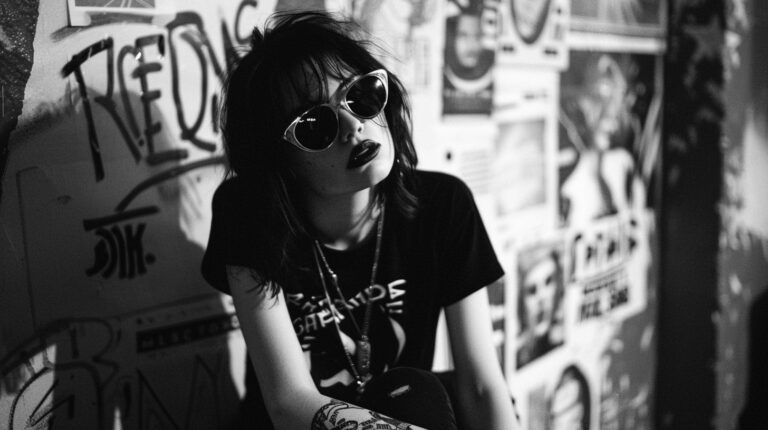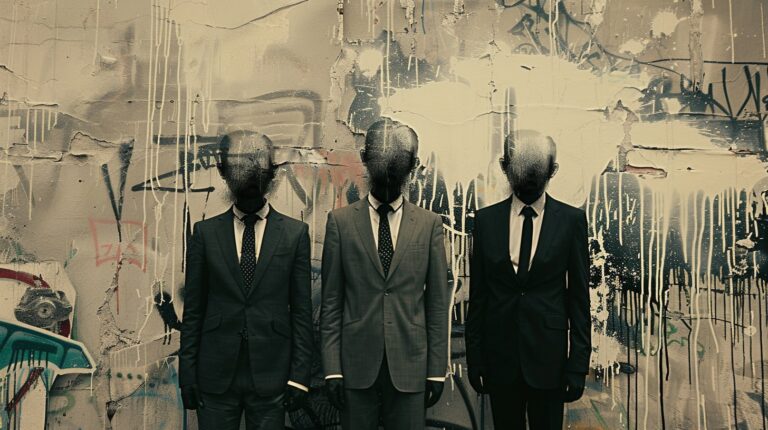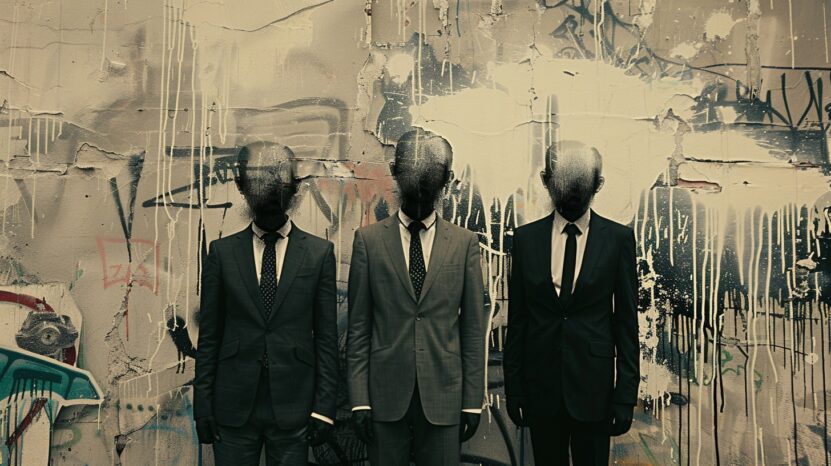
I’ve always had a soft spot for the electrifying tunes of Foals and the Arctic Monkeys, letting their music color my days with vibrant shades of emotion and energy.
I became so obsessed with Arctic Monkeys that I even went to listen to their tribute bands.
Why are these two bands so important to me so much?
Well, they introduced me to the amazing world of new sound – a combination of special effects and electric guitar filled with emotions and deeper meaning like no other genre.
This “new sound” was made during the 70s.
It also motivated me to start looking deeper into the genre, including its roots.
Led by a simple curiosity, I’ve discovered an amazing world of Post-Punk music.
Amazingly, I was listening to so many bands and genres before I even knew they were all directly influenced by Joy Division, Nick Cave & the Bad Seeds, The Cure, Molchat Doma, and many others that changed the rock scene during the 70s and 80s.
Early Days of Post-Punk
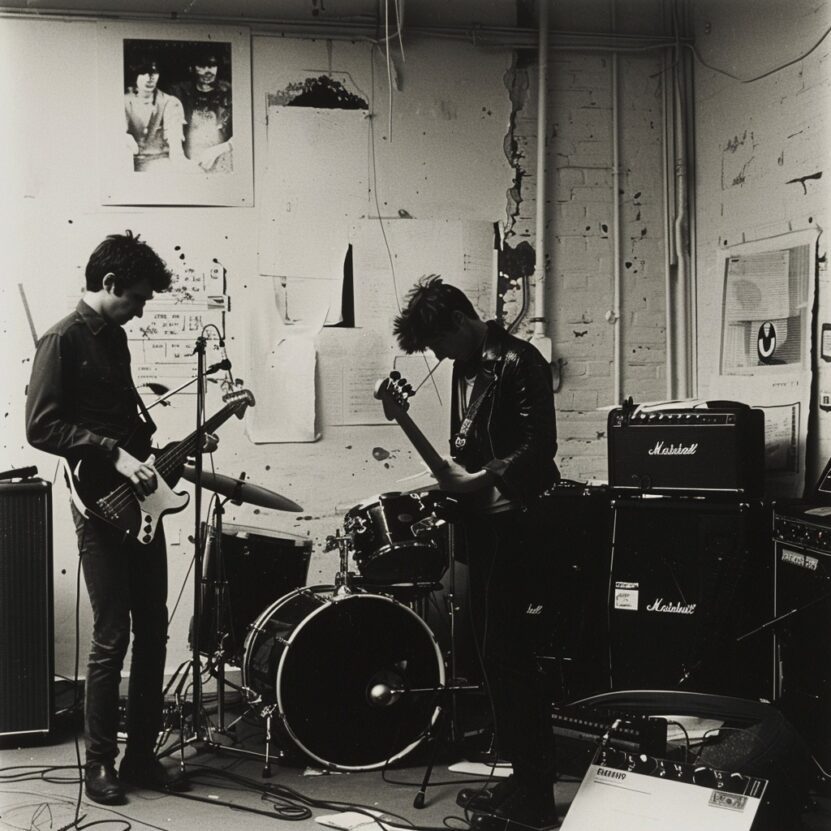
It all started with some unknown garage bands and their passion for bringing something new to the music scene.
The impact of new technologies is already seen in Pop music and the development of synthesizers and drum machines.
So, I would say that Post-Punk was a natural response to that.
I’ve found a great definition from Colin Fitzgerald and his article on Pop Matters:
“Post-punk”, in the most general terms, has come to refer to the resulting boom of musical experimentation that developed out of this industry-wide sea change, but without any more definitive attributes.”
And I think that it is only partly true. At least it is today.
The reason why I think not all experiments belong to Post-Punk is because the public later recognized the existence of this genre after all, and we know very well who represents it.
You simply cannot say that U2 was ever part of this genre. Their first two albums are, but when we think about the band today, U2 is part of something else.
One of the songs from U2s first album from 1920 named “Boy”:
The tone of early U2 was post-punk, but not the spirit.
So what does it represent?
It is quite simple to understand. Just listen and compare a few albums from Joy Division, Talking Heads, or Mogwai.
They are all unique, each one in its own way, but if you focus more on the instruments, you will notice the focus on background music.
It’s like a wave that is driving the tune. Without it, it would be empty, and soulless.
The tempo, energy, and emotion can differ. They are quite different from band to band, but the core remains the same.
They are all spreading those emotions through a unique sound driven by DIY effects and early forms of electronic patterns.
A lot of people suggest that the definite date when we got a music album that stays in this genre as a whole is the Public Image introduced by Public Image Limited.
Now I will get back to U2. This album from PIL had a huge influence on many bands, including Joy Division, the Cure, and the previously mentioned one.
But why do most of us think that U2 simply cannot be part of the same movement? That is because they added a commercial note to the genre, trying to bring the Post-Punk into the mainstream with an album called The Boy.
- Gang of Four: Known for their mix of punk rock energy with funk, dance music, and leftist political themes.
- Wire: Their minimalist, art punk approach influenced many later alternative and indie bands.
- Joy Division: With their dark, atmospheric sound, they became a defining act of post-punk before evolving into New Order after the death of their lead singer, Ian Curtis.
- The Fall: Led by Mark E. Smith, their music featured an eclectic mix of rockabilly, dance, and punk with densely layered lyrics.
- Public Image Ltd (PiL): Founded by John Lydon (Johnny Rotten of the Sex Pistols), PiL explored a more experimental sound compared to the straightforward punk of the Sex Pistols.
- Siouxsie and the Banshees: Starting as a punk band, they quickly evolved into one of the most influential post-punk groups with their innovative use of guitar textures and rhythms.
- The Slits: Merging punk with reggae, they were pioneers in creating a more diverse sound that broke away from punk’s more traditional elements.
Now Let’s Talk About Its Impact On Modern Music
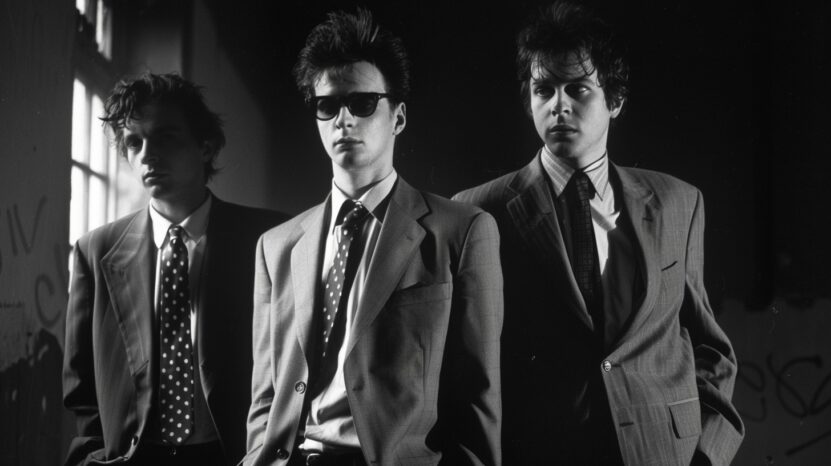
The elements found in this genre can be seen all the time since they were introduced back in the 70s.
For example, even the famous Nirvana followed certain patterns and techniques. The whole Grudge movement was partly inspired by Post-Punk.
Even more interesting things started to happen in the late 90s and early 2000s. This period is known as an attempt to revive the Post-Punk in its full glory, but with an even bigger influence of new technologies and experiments.
Pixies made their breakthrough in the 90s with their hit “Where is My Mind”. I reached global fame thanks to the movie Fight Club.
But on the other hand, can you imagine this movie without the famous track? Me neither.
Another simple example is Bloc Party, founded in 1999. It is an indie rock band heavily influenced by Joy Division, the Smiths, but also by modern Big Beat music – The Chemical Brothers.
The band never tried to hide the fact they were influenced by the Post-Punk movement.
The journalists from Belfast Telegraph stated:
Bloc Party’s first single, “She’s Hearing Voices”, alongside its nods to Joy Division and its megaphone tones recalling Mark E Smith of The Fall, marked them as a band on a level beyond the new-wave and Eighties-revivalist bands of the moment.
And now I will get back to the beginning of this article when I told you that my favorite indie bands are the Foals and Arctic Monkeys.
Well, both contain a lot of elements that can be related to post-punk. And even though the complexity of music may be different, especially for the Foals, the energy remains the same.
My favorite album by AM is “Whatever People Say I Am, That’s What I’m Not”, especially the Fake Tales of San Francisco and The View From The Afternoon. There are many other hits I must mention here. For example, When the Sun Goes Down, or 505, each one is unique in its way.
As you can see, I skipped Arabella, Do I Wanna Know, and Snap Out of It because these are even more special. I think this band will influence new artists decades from now. Who knows, that might be a reason for another revival of Post-Punk(with some new weird twist)
And for the Foals, the impact is even more evident. The first few even more, like the Antidotes.
Also, I think that the influence of Joy Division helped them progress and reach the point when they released The Holy Fire. For me, Holy Fire is in the top 5 music albums counting all music genres. Each song is a journey. For example, My Number was a big hit that DJs were spinning all over the world.
On the other hand, Milk and Black Spiders gives me such chills that cannot be described with words. Just listen to it.
So, what’s the conclusion here? Well, for me, it’s quite simple. Without the 70s era and experiments with eclectic and electric additions to punk rock, I couldn’t enjoy my favorite indie rock bands today.

